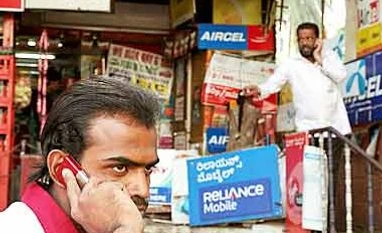Telecom operators association Cellular Operators Association of India (COAI) and Association of Unified Telecom Service Providers of India (AUSPI) on Thursday moved Supreme Court, challenging the Delhi High Court order which upheld Telecom Regulatory Authority of India (Trai)’s decision to offer compensation to mobile users for call drops.
The apex court will hear the plea on Friday.
“We are requesting a stay for no coercive action by Trai while the matter is being heard by the SC,” said an executive with a telecom firm.
The appeal on Thursday in the SC says the impugned regulations are inconsistent with the Telegraph Act of 1885 under which licences are granted, he adds.
The plea of the associations was mentioned before a bench of Chief Justice T S Thakur, seeking urgent hearing on the matter.
The bench, also including judge U U Lalit, asked the associations: “Why don’t you correct the system?”
Senior advocate Kapil Sibal, appearing for the telecom associations, said this matter required urgent hearing as Delhi High Court had upheld the Trai order, after which the bench agreed to hear the plea on Friday.
On Monday, the high court had dismissed the petitions filed by COAI, AUSPI, and 21 telecom operators, including Vodafone, Bharti Airtel and Reliance.
The regulation was to come into effect from January 1, but telecom operators had approached the high court against the Trai’s order.
In October last year, Trai issued amendment in Telecom Consumers Protection Regulations, mandating this compensation. Mobile users will be given rupee one compensation for each call drop, with a compensation cap of Rs 3 per day but no coercive step was taken by the regulator as the matter was pending in the court.
Trai had told the high court that consumers have a right to get compensated for call drops and this was different from the quality of service guidelines that cellular service providers have to follow under the licence conditions. However, telecom companies had argued that even if consumers were facing problems, a regulation without statutory backing cannot be created.
The telecom firms had termed the regulation as “arbitrary and whimsical”, contending that providing compensation to consumers amounted to interfering with companies’ tariff structure which could be done only by order, not regulation.
The high court, while brushing aside the contention of telecom firms, had also observed that the compensation for call drops was capped at Rs 3 only and the regulation also mandated compensating the calling consumer and not the receiver.
The apex court will hear the plea on Friday.
“We are requesting a stay for no coercive action by Trai while the matter is being heard by the SC,” said an executive with a telecom firm.
The appeal on Thursday in the SC says the impugned regulations are inconsistent with the Telegraph Act of 1885 under which licences are granted, he adds.
The plea of the associations was mentioned before a bench of Chief Justice T S Thakur, seeking urgent hearing on the matter.
The bench, also including judge U U Lalit, asked the associations: “Why don’t you correct the system?”
Senior advocate Kapil Sibal, appearing for the telecom associations, said this matter required urgent hearing as Delhi High Court had upheld the Trai order, after which the bench agreed to hear the plea on Friday.
On Monday, the high court had dismissed the petitions filed by COAI, AUSPI, and 21 telecom operators, including Vodafone, Bharti Airtel and Reliance.
The regulation was to come into effect from January 1, but telecom operators had approached the high court against the Trai’s order.
In October last year, Trai issued amendment in Telecom Consumers Protection Regulations, mandating this compensation. Mobile users will be given rupee one compensation for each call drop, with a compensation cap of Rs 3 per day but no coercive step was taken by the regulator as the matter was pending in the court.
Trai had told the high court that consumers have a right to get compensated for call drops and this was different from the quality of service guidelines that cellular service providers have to follow under the licence conditions. However, telecom companies had argued that even if consumers were facing problems, a regulation without statutory backing cannot be created.
The telecom firms had termed the regulation as “arbitrary and whimsical”, contending that providing compensation to consumers amounted to interfering with companies’ tariff structure which could be done only by order, not regulation.
The high court, while brushing aside the contention of telecom firms, had also observed that the compensation for call drops was capped at Rs 3 only and the regulation also mandated compensating the calling consumer and not the receiver.
)